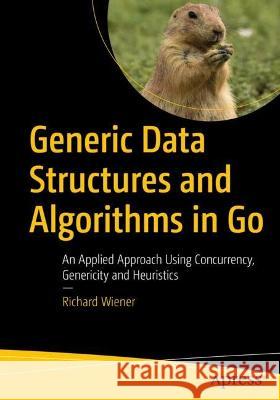Generic Data Structures and Algorithms in Go: An Applied Approach Using Concurrency, Genericity and Heuristics » książka
topmenu
Generic Data Structures and Algorithms in Go: An Applied Approach Using Concurrency, Genericity and Heuristics
ISBN-13: 9781484281901 / Angielski / Miękka / 2022 / 579 str.
Generic Data Structures and Algorithms in Go: An Applied Approach Using Concurrency, Genericity and Heuristics
ISBN-13: 9781484281901 / Angielski / Miękka / 2022 / 579 str.
cena 262,25
(netto: 249,76 VAT: 5%)
Najniższa cena z 30 dni: 250,57
(netto: 249,76 VAT: 5%)
Najniższa cena z 30 dni: 250,57
Termin realizacji zamówienia:
ok. 16-18 dni roboczych.
ok. 16-18 dni roboczych.
Darmowa dostawa!
Intermediate to Advanced











